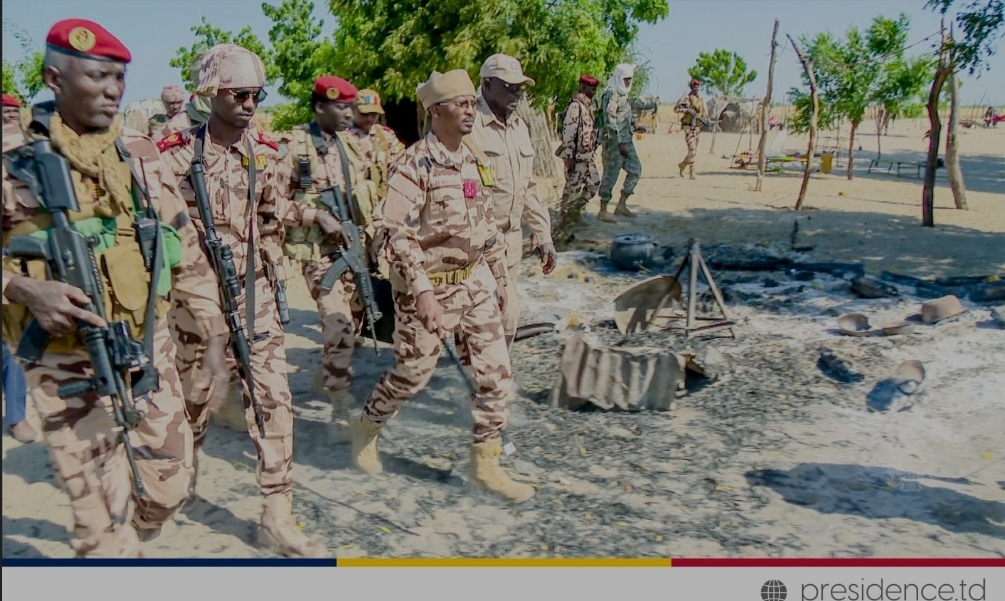
Months of battlefield losses and hundreds of defections appeared to weaken Boko Haram, but it has not stopped the extremists from continuing to terrorize the Lake Chad Basin.
Experts say that because the group has shown an alarming ability to reorganize and adapt its tactics, security forces must be just as flexible and resilient.
Encompassing parts of Cameroon, Chad, Niger and Nigeria, the Lake Chad Basin has proved to be a troublesome theater with its many swamps and islands.
All four countries contribute troops to the Multinational Joint Task Force (MNJTF) that recently concluded Operation Lake Sanity 2, which dismantled several terrorist hideouts.
“The [operation] resulted in the neutralization of numerous Boko Haram terrorist combatants, the successful rescue of several hostages, and the capture of arms and ammunition,” the MNJTF said in a statement on October 26, 2024.
Remadji Hoinathy and Célestin Delanga, researchers with the South Africa-based Institute for Security Studies, said that security forces must anticipate the terrorist group’s next pivot.
“Operation Lake Sanity has had some success against Boko Haram in the Lake Chad Basin, but the insurgents will soon adapt to the new military tactics,” they wrote in a September 16, 2024, article. “To sustain the gains made, the Multinational Joint Task Force leading the operation must stay ahead of these dynamics.”
After MNJTF operations, militants fled into peripheral areas, where they attacked civilians and increasingly used suicide bombers and improvised explosive devices (IEDs).
“The use of vehicle-borne IEDs and those buried in the ground poses a grave risk for security forces and calls for demining operations and technologies like mine-resistant, ambush-protected vehicles,” the researchers wrote.
“Boko Haram’s use of IEDs and suicide attacks propagates fear and disrupts both community cohesion and military efforts. These tactics must be tackled head-on to prevent a resurgence and return of the terrorist factions.”
In its October 26, 2024, news release, the MNJTF said it “is actively engaged in stabilizing the area, providing genuine protection to civilians, and creating conditions conducive to sustainable peace and development.”
The next day, however, Boko Haram showed it still can muster the strength for large-scale attacks.
On October 27, about 300 Boko Haram fighters stormed a Chadian military base on an island called Barkaram, 5 kilometers from the border with Nigeria. The militants killed at least 40 Soldiers and their commander, seized weapons, and burned vehicles equipped with heavy arms.
Chadian President Mahamat Idriss Déby somberly assessed the damage the day after the attack and promised retribution.
“I have decided to launch Operation Haskanite to avenge our [Soldiers],” he said in a government video. “I would like to reassure the Chadian people that we will hunt down these lunatics. We will track them down to their last base.”
Found in the Lake Chad area and in surrounding deserts, Haskanite is a local plant known for its strength and resiliency.
With another large military operation imminent in the Lake Chad region, Hoinathy and Delanga said Chad’s neighbors and the MNJTF should focus on the ways in which Boko Haram militants adapt their tactics and break into smaller groups.
While acknowledging that large, coordinated military efforts can achieve many objectives, the researchers also called for security forces to improve their capacity for monitoring peripheral areas.
“This should include regular operations by combined forces from Lake Chad Basin countries to prevent Boko Haram from redeploying its fighters to these areas. This strategy would preserve the stability achieved in certain localities and avoid pressure from new waves of people who have been forcibly displaced,” the researchers wrote.
Providing more police and government presence in the areas surrounding Lake Chad also would help to counter security threats and build trust with communities. Nonkinetic approaches are needed as well, including humanitarian and economic assistance for those affected by violence.
“Engaging with local communities in these areas will enable intelligence gathering and create a united front against the insurgents,” they wrote. “Existing community development efforts as part of the Lake Chad Basin Commission’s regional stabilization strategy should be ramped up, including civil-military actions by the MNJTF.”
N.B: The post, “Shift in Boko Haram tactics requires security forces to adapt” – appeared first on Africa Defense Forum (ADF Magazine)
